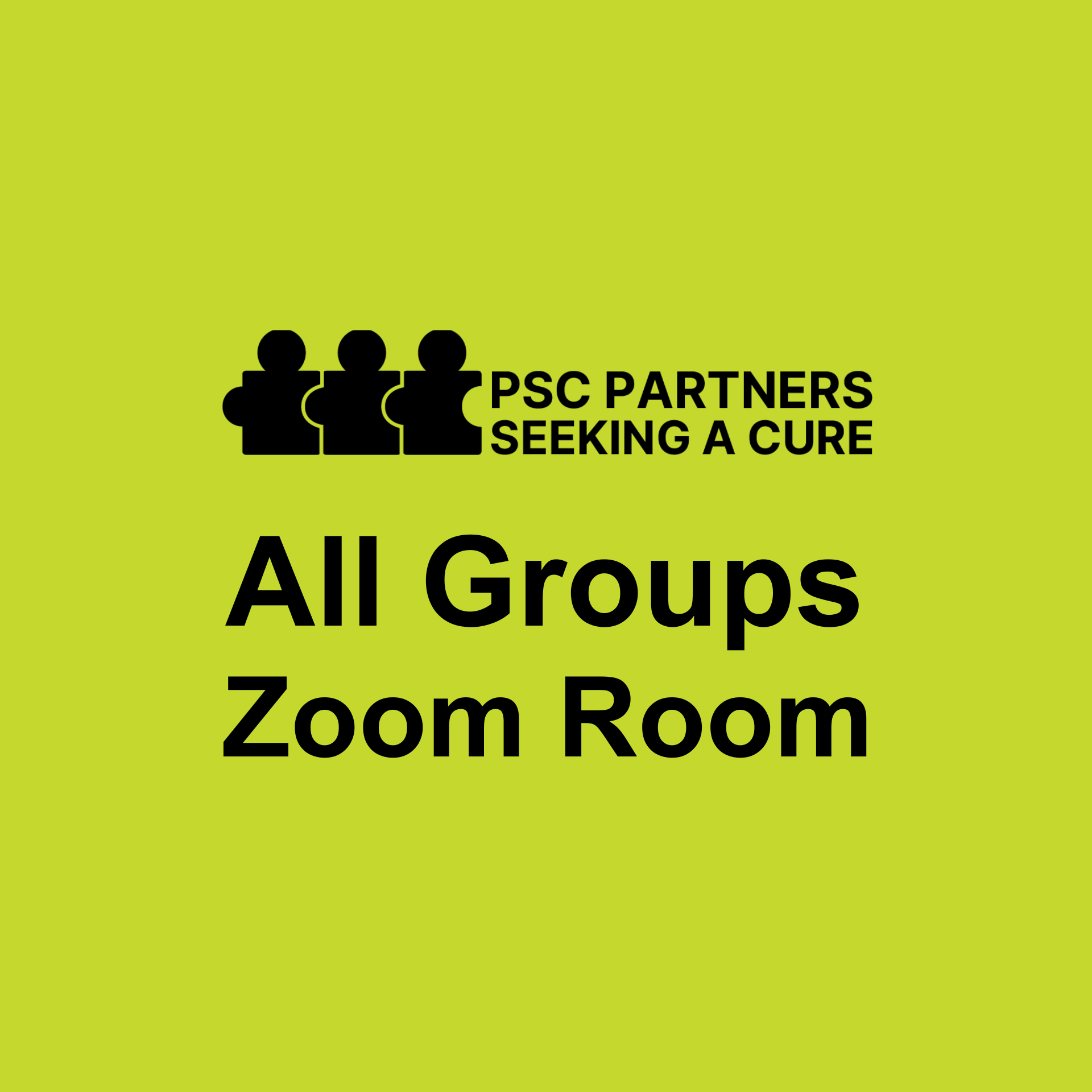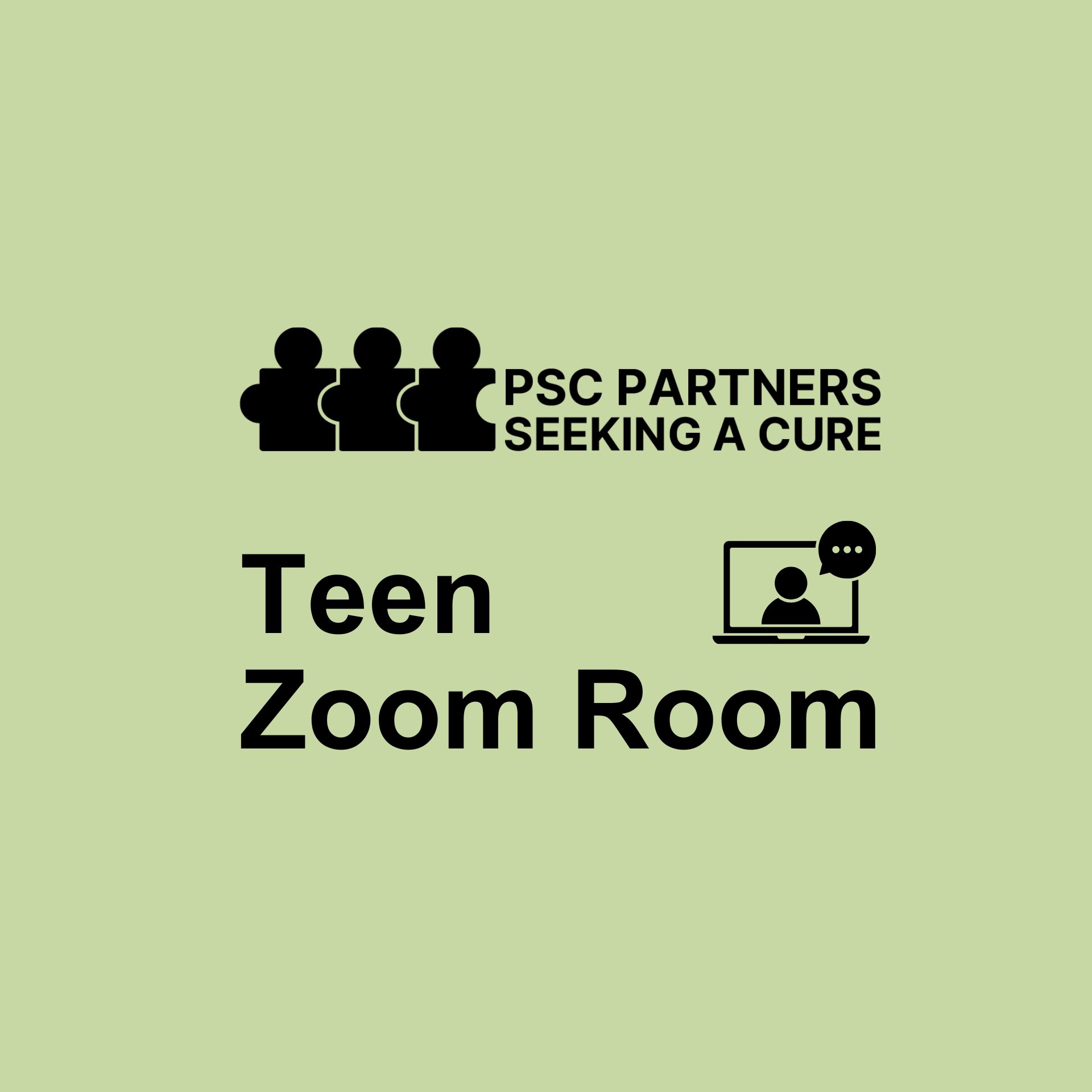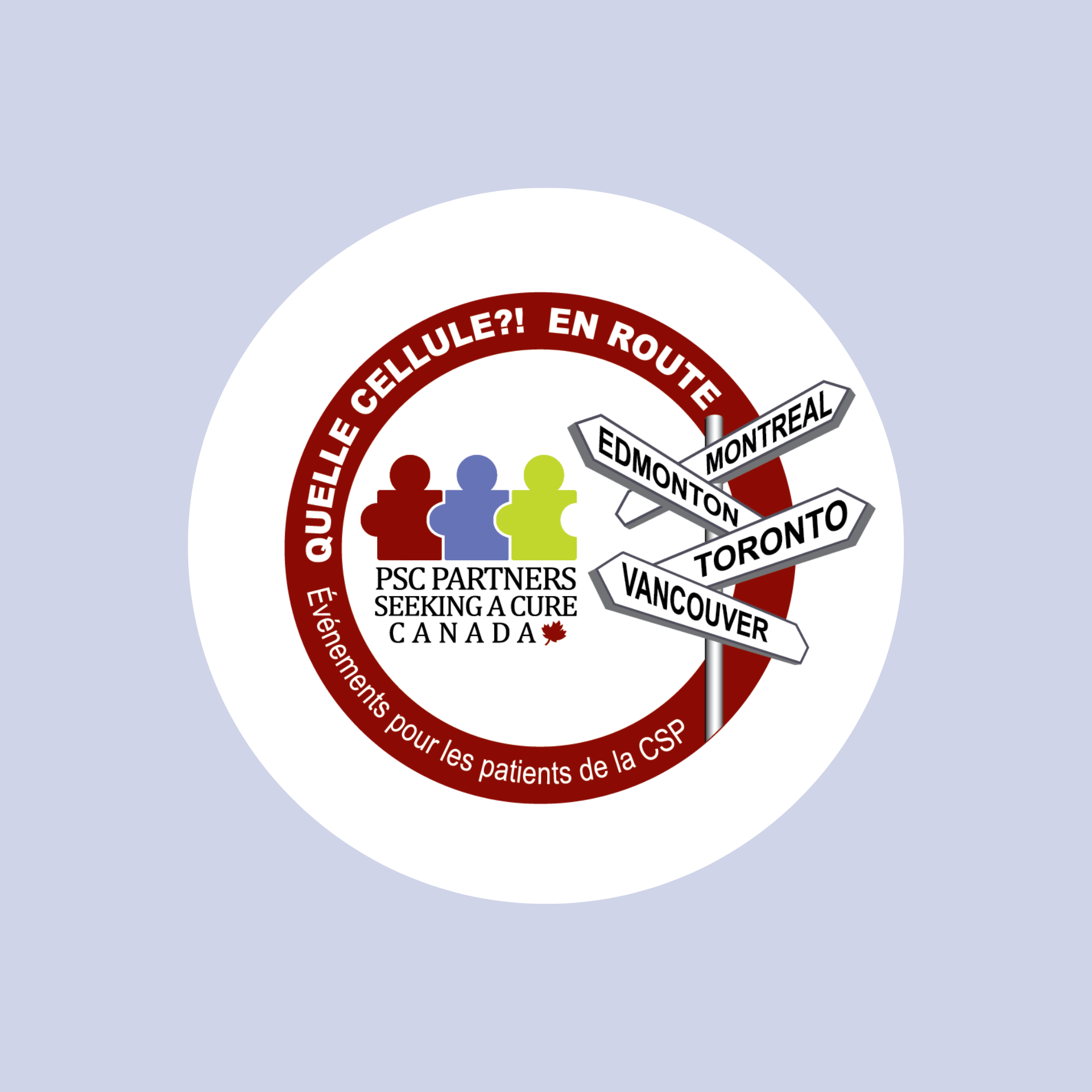“What the Cell?!” – Scientists and Patients Collaborate to Translate Basic Science to Rare Disease Patient Community
DENVER (Colo.) and TORONTO (Ont.) – Patients, their families, clinicians, and scientists gathered recently for an important discussion about primary sclerosing cholangitis (PSC), a rare autoimmune liver disease affecting over 3,000 Canadians, and one in 10,000 people worldwide. The PSC Partners Seeking a Cure What the Cell?! patient event took place on October 14 and 15, 2023, at the Arts & Letters Club in Toronto, Canada. This event brought together all the stakeholders involved in the Chan Zuckerburg Initiative (CZI)-funded Patient-Partnered Collaborations (PPC) project focused on transcriptomically and functionally characterizing pediatric PSC. What the Cell?! was supported by Medicine by Design (MBD) at the University of Toronto, the Ajmera Transplant Center and the Toronto Centre for Liver Disease (TCLD) at the University Health Network, the Chan Zuckerberg Initiative DAF, an advised fund of Silicon Valley Community Foundation, and the Canada Institutes of Health Research (CIHR). Recordings of sessions are available on the PSC Partners and PSC Partners Canada websites and YouTube channels.
Due to the support provided by Medicine by Design, CZI, and CIHR, those impacted by PSC, including patients and their families, were able to apply for financial support to travel to attend this year’s event which enhanced accessibility and resulted in a record patient and caregiver turnout for the PSC Partners Seeking a Cure Canadian event. For those living with this rare disease, many of whom had never met another person with PSC, this was an invaluable opportunity for PSC education, scientific updates, community-building, and peer support.
What the Cell?! sessions included a presentation of different elements of PSC and the PPC project, including the technological approaches, results so far, and the impact this work will have on therapeutic development for PSC. For this session, Dr Sonya MacParland, lead Principal Investigator (PI) on the PPC grant and Senior Scientist at the Toronto General Hospital Research Institute, and her lab members, Dr Rachel Edgar and Diana Nakib spoke
“This is a really special opportunity to be able to work together. What we are trying to do on the big scale is to link cellular maps to disease to guide new therapies,” said Dr. MacParland.
Additional sessions included:
- a presentation focused on examples of successful applications of the drug-discovery pipeline and its central role in PSC research by Dr Gary Bader, PI on the PPC grant and affiliate scientist at the Princess Margaret Cancer Centre and Professor at the Donnelly Centre for Cellular and Biomolecular Research
- a discussion about the relationship between PSC and inflammatory bowel disease (IBD), and the role of transcriptomic (the complete set of RNA molecules expressed in any given entity, cell, or tissue) exploration in uncovering the link between PSC and IBD by Dr. Amanda Ricciuto, Clinical PI on the PPC grant and Pediatric Gastroenterologist at the Hospital for Sick Children
- a summary of the current state of PSC research and available therapeutic options for patients by Dr Gideon Hirschfield, PPC collaborator, Hepatologist at TCLD, and the Lily and Terry Horner Chair in Autoimmune Liver Disease at UofT
Event content was also guided by the requests of patients. This included a presentation on mental health and mindfulness by Dr Sarah Kohut, Psychologist at the Hospital for Sick Kids, as well as an inspiring talk on the state of the Living Donor Transplant Program at Toronto General Hospital by Dr. Nazia Selzner, Transplant Hepatologist and Medical Director of the Living Donor Liver Transplantation at the Ajmera Transplant Center.
Dr. Stephen Rossi, Chief Scientific Officer for PSC Partners Seeking a Cure, discussed research strategy and the importance of patient involvement.
“Bringing the patients together collaboratively with the physicians and researchers is critical in making sure we align and prioritize what’s important, both for the community and for the PSC Partners organizations,” said Dr. Rossi.
In preparation for the conference, the PPC team members consulted patients acting as expert knowledge translators in order to make the content as accessible as possible for the non-researcher patient and caregiver audience. Volunteers with PSC Partners Seeking a Cure Canada, such as Virve Aljas, previewed presentations and raised points of clarification prior to the finalized slide sets being presented. Ms. Aljas also participated as a session moderator and facilitator of the question and answer period following the scientific presentations. Patient interpreters and moderators were also embedded in the audience to raise questions throughout the presentations and ask for clarification from the speakers.
In response to a patient question about identifying promising drug treatments to repurpose for PSC, PI Dr. Gary Bader said, “We have all the pieces in place to find predicted drugs from the analysis we are now doing and to start the immediate next step of testing. We now have platforms in place so that we can test.”
The second day of the conference consisted of patient-led community-building discussions and peer mentor groups facilitated by Mary Vyas, Patient PI on the PPC project and President of PSC Partners Canada.
About PSC and PSC Partners:
Primary Sclerosing Cholangitis (PSC) is a rare liver disease that damages the bile ducts inside and outside the liver. Approximately one in 10,000 people have this rare disease, which does not discriminate based on age, gender, or race. There are no treatments and no cure, but there is hope. PSC Partners and PSC Canada are working with experts to identify treatments and a cure for PSC while providing education and support for those impacted by this rare disease.
About PSC:
PSC is a rare liver disease impacting one in every 10,000 people worldwide. The disease does not discriminate based on ethnicity, age, or gender, and the cause is unknown. There are few treatments and no cure. PSC Partners drives research to identify treatments and a cure for PSC while providing education and support for those impacted by this rare disease. Get more information about PSC Partners.
About this CZI Research RFA: The Chan Zuckerberg Initiative’s (CZI) Patient-Partnered Collaborations for Single-Cell Analysis of Rare Inflammatory Pediatric Disease RFA Grantees brings together patient-led here rare disease organizations and research teams for four-year research projects. Get more information about the CZI Research RFA.
Watch the 1.5 minute slide show for more information about the event:













 Near Montreal, QC: DoubleTree by Hilton Montreal Airport, 705 Avenue Michel-Jasmin, Dorval, Quebec, H9P 1B8
Near Montreal, QC: DoubleTree by Hilton Montreal Airport, 705 Avenue Michel-Jasmin, Dorval, Quebec, H9P 1B8 






